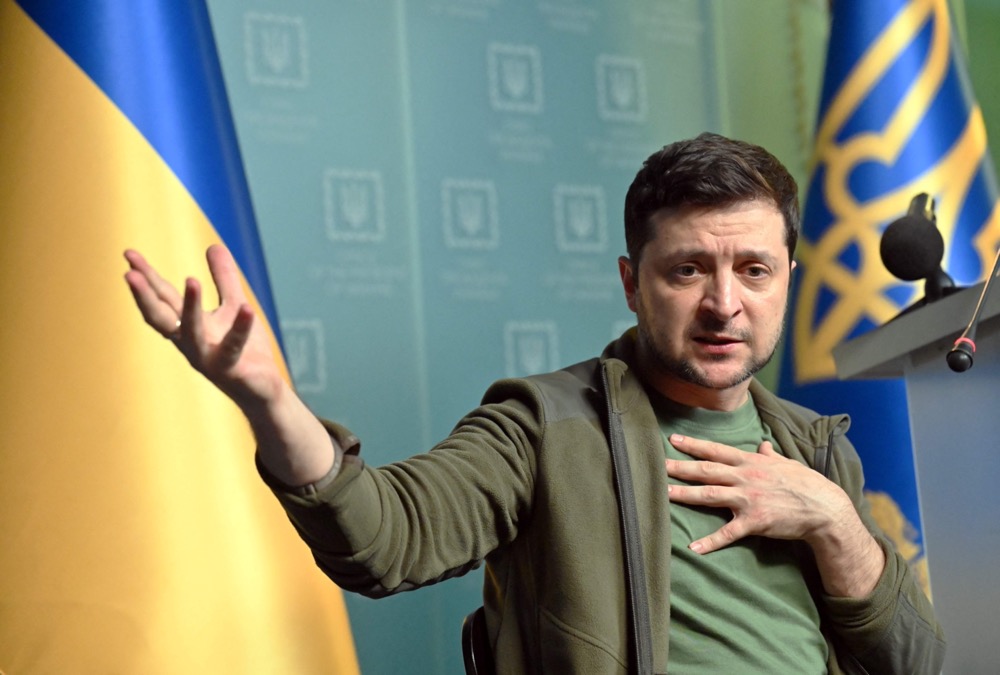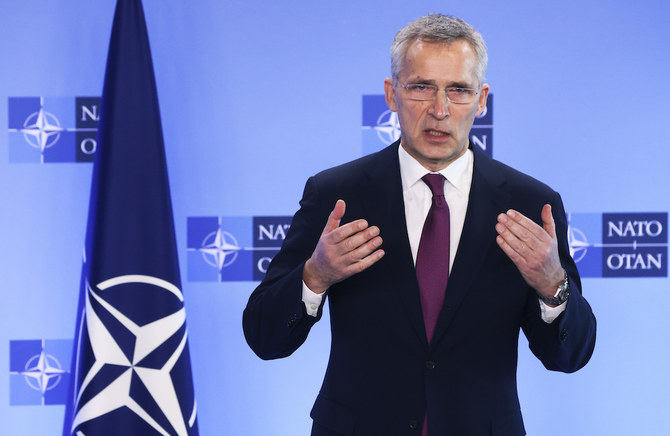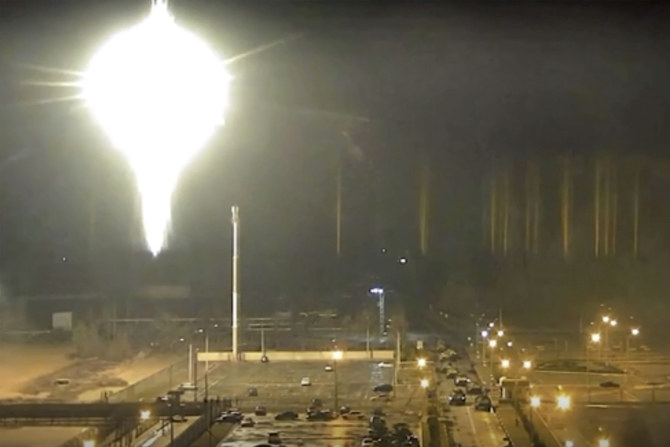KYIV/BRUSSELS: NATO chief Jens Stoltenberg on Friday decried Russia’s “recklessness” over the shelling of a nuclear power plant in Ukraine and demanded Moscow stop the war against its neighbor.
“Overnight we have also seen reports about the attack against the nuclear power plant. This just demonstrates the recklessness of this war and the importance of ending it and the importance of Russia withdrawing all its troops and engaging good faith in diplomatic efforts,” Stoltenberg said ahead of a meeting with Western foreign ministers.
Russian forces seized control of Europe’s largest nuclear power plant earlier Friday after a battle with Ukrainian troops that caused a fire and fears of a catastrophic accident.
The Ukrainian nuclear regulator said that the fire had been extinguished and no radiation leak had been detected, with site staff still able to work at the Zaporizhzhia site.
“The Zaporizhzhia NPP site has been seized by the military forces of the Russian Federation,” the State Nuclear Regulatory Inspectorate of Ukraine said, in a statement.
“The fire was extinguished by the Ukrainian State Emergency Service units. Information on the dead and injured is absent.”

The attack on the eastern city of Enerhodar and its Zaporizhzhia nuclear plant unfolded as the invasion entered its second week. (Zaporizhzhia Nuclear Authority/AFP)
Earlier, fighting had erupted between Russian invasion forces pushing toward the city of Zaporizhzhia and Ukrainian defenders, causing a blaze at the plant and global alarm.
The power station is located in southern Ukraine on the Dnipro river and produces a fifth of Ukraine’e electricity.
Any fire in a nuclear plant revives memories of the 1986 Chernobyl disaster, also in Ukraine, which left hundreds dead and spread radioactive contamination west across Europe.
Of the six reactors at Zaporizhzhia, the agency said, one is in operation and producing power, one has been turned off and four are being cooled to prevent overheating.
The regulator did not say, however, what each reactor’s status had been before the fire.
An on site inspection is being carried out by Ukrainian staff.
Ukraine’s President Volodymyr Zelensky accused Moscow of resorting to “nuclear terror” by risking a repeat of the Chernobyl disaster and begged world leaders to back Kyiv.
“No country other than Russia has ever fired on nuclear power units,” he said in a video message released by his office.
“This is the first time in our history. In the history of mankind. The terrorist state now resorted to nuclear terror.”
Opinion
This section contains relevant reference points, placed in (Opinion field)
Zelensky alleged that the Russian troops had knowingly fired on the nuclear facility.
“These are tanks equipped with thermal imagers, so they know where they are shooting,” said Zelensky.
Ukraine’s nuclear facilities have been a major point of concern since Russia’s military invaded the country last week and began bombarding cities with shells and missiles.

Ukrainian President Volodymyr Zelenskyy and the US Department of Energy activated its nuclear incident response team as a precaution. (AFP)



















